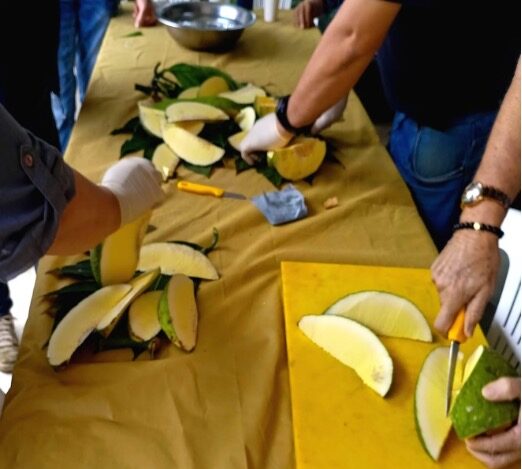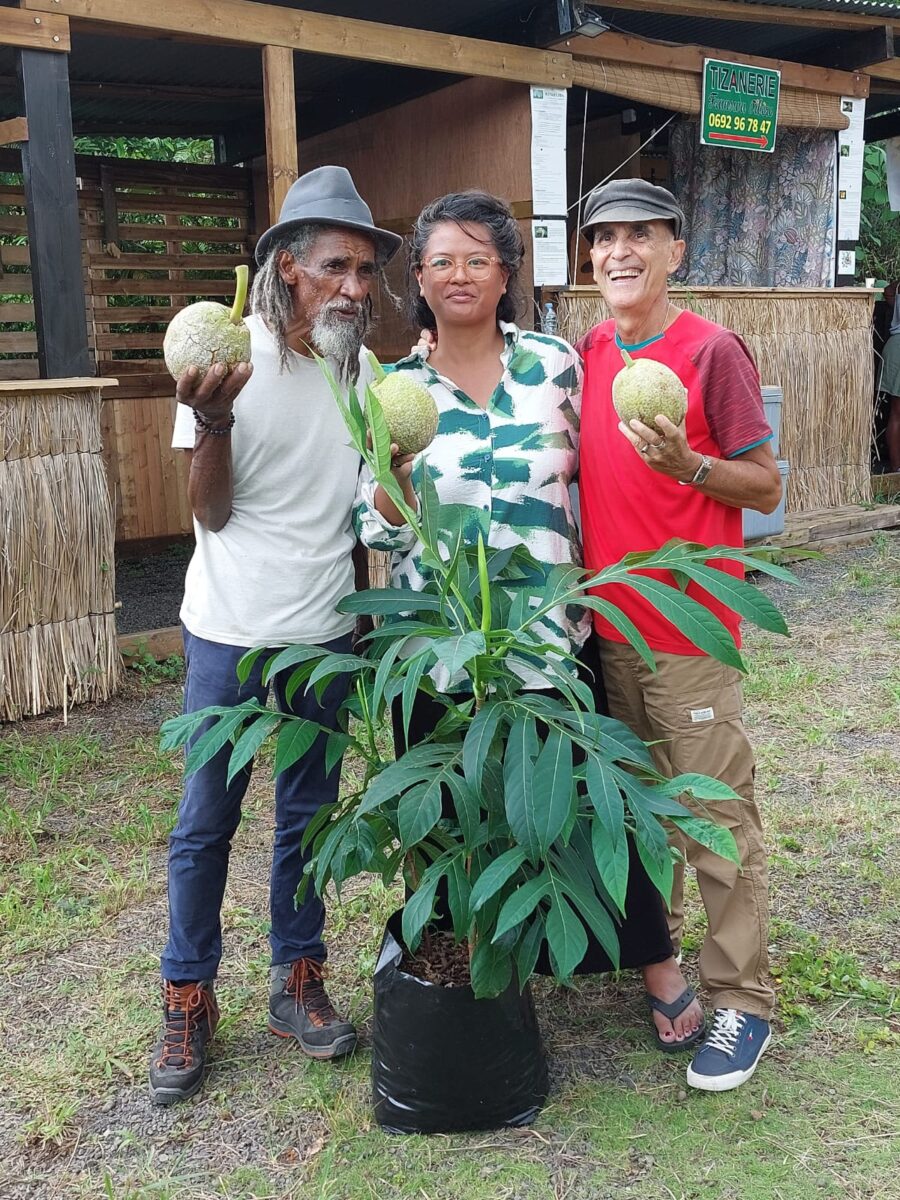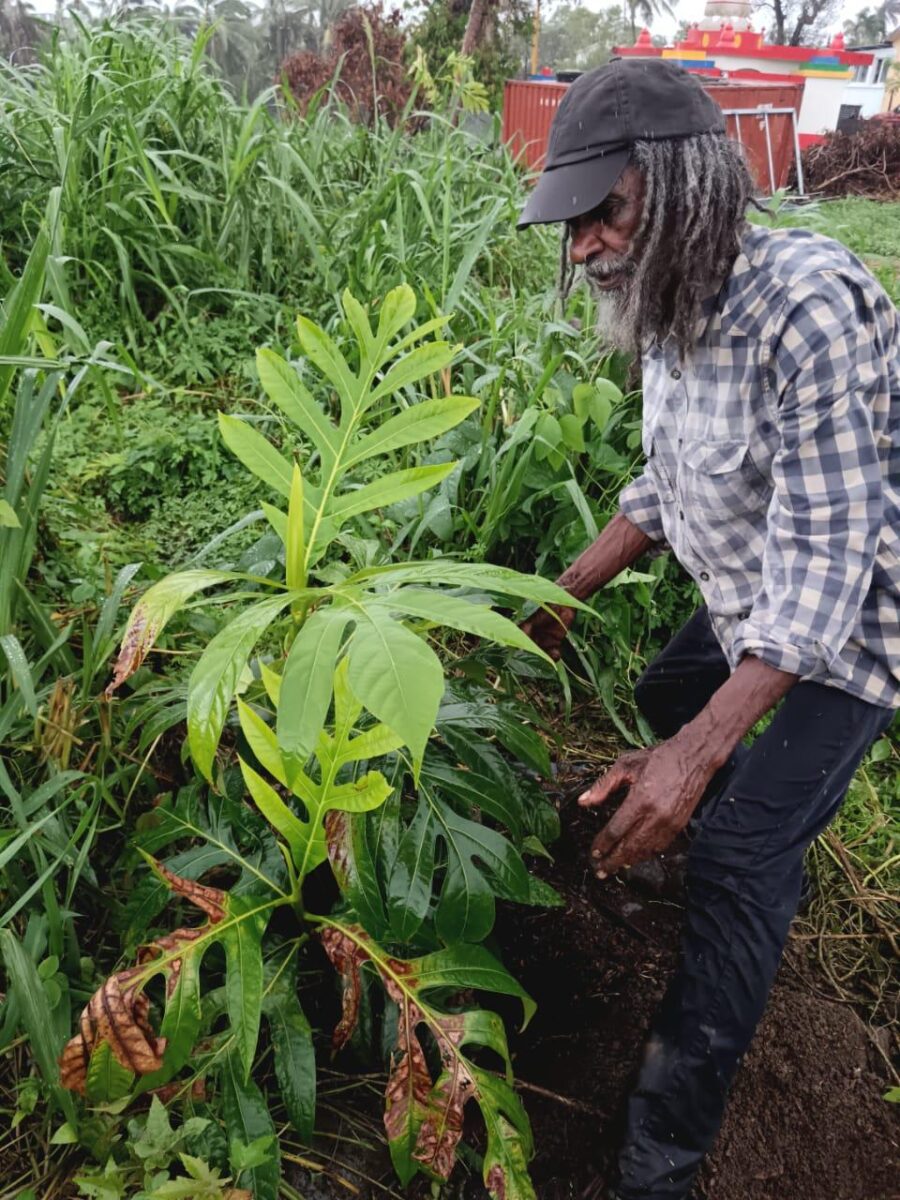Gras a sa (thanks to this)
The Gras a sa Breadfruit Project brings together Nathalie Muchamad’s work Breadfruit, Planetarity and Mutiny with Franswa Tibere’s regenerative farm, Association Zarboutan on La Reunion Island.

Artist Nathalie and farmer Franswa met through their mutual research and cultivation of Breadfruit (Artocarpus altilis), a plant native to New Guinea and the Indo-Malay region that has long served as a staple food across the Pacific. With more than two thousand names and hundreds of varieties, breadfruit is entangled in histories of imperial botany and colonial exploitation. Most notoriously, it was transplanted to the Caribbean by the British during the 18th century to feed enslaved workers on sugar plantations.
Locally known as gras a sa—Creole for “thanks to this”—breadfruit has historically provided survival food in times of crisis, particularly during the British naval blockades of the Second World War when La Réunion’s port was closed. Its association with hardship and plantation exploitation has left a lasting stigma on its culinary and cultural place in the region. Through this project, Nathalie and Franswa seek to challenge that stigma and reconnect breadfruit to ideas of resilience, autonomy, and climate adaptation.
The project addresses the intensification of extreme weather events across the Indian Ocean—a region recently battered by the strongest cyclones in over a century. Cyclone damage has been exacerbated by urban overdevelopment, which has replaced absorbent soils with concrete, causing violent surface water runoff and destructive erosion.
Breadfruit offers a living solution: its wide canopy provides shade and helps regulate temperatures, while its deep root systems improve water absorption and prevent soil erosion. Historically, the island was covered by dense forests, but colonial and post-colonial land practices have left significant areas—especially between sea level and 400 meters altitude—deforested and vulnerable. The project builds on past urban reforestation initiatives, such as the successful 1970s Le Port city campaign, using breadfruit as both a cultural and ecological tool for climate adaptation.
Nathalie and Franswa’s project was recipient of an Honourable Mention in the CLIMAVORE x Jameel at RCA 2025 Food Action Awards

